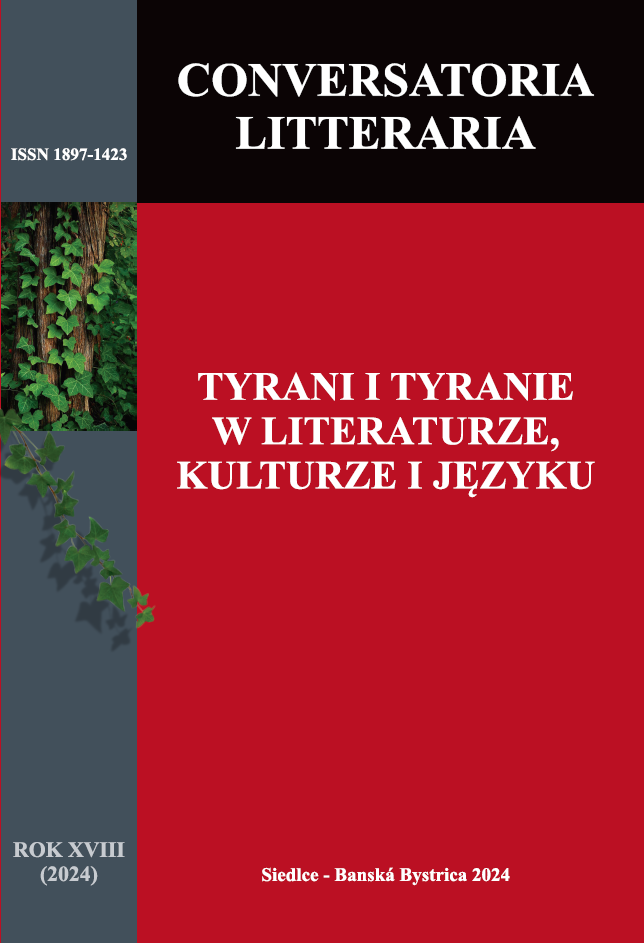Tyrants and tyrannies: cultural construct or human universality?
DOI:
https://doi.org/10.34739/clit.2024.18.01Keywords:
tyrants, tyranny, cultural construct, human universal, Slovak and Polish romantic poetry, biocultural interpretationAbstract
The article develops the thesis of anthropologist Ch. Boehm according to whom, the aversion to subordination, which is culturally prominent but also oppressed, is one of the universal human political predispositions, i.e. human universals stemming from human nature as well as one of the essential and influential driving forces of the evolution of the human species. In the human biocultural nature, not only rests the concept of the "noble egalitarian savage" but also on a no less powerful concept of the "despotic tyrant". The study tests the explanatory power of this thesis by attempting a biocultural, consilience-based interpretation of agonistic structures in the Slovak Romantic poem Mor ho! by Samo Chalupka and in the Polish Romantic poem Redut Ordon by Adam Mickiewicz. The author concludes that these poems articulate and address not only the historically specific desires of the Slovak Romantic generation for freedom but also universal features of human nature.
Downloads
Downloads
Published
Issue
Section
License
Copyright (c) 2024 Authors

This work is licensed under a Creative Commons Attribution-NoDerivatives 4.0 International License.




